Crossover Training: From Baseball to Golf Swing
Translating the rotational power and sequencing from baseball into your golf swing can unlock new levels of clubhead speed and consistency. Both sports hinge on efficient weight transfer, torque generation, and precise timing. These crossover drills harness baseball’s explosive med-ball and band work, retooling them for the tee box to produce a faster, smoother golf swing.
Why Crossover Rotational Training Works
- Builds on familiar kinetic patterns: baseball hitters already excel at hip–shoulder separation and rapid deceleration.
- Enhances neuromuscular coordination: training the same muscle chains in a new context deepens motor learning.
- Improves timing and feel: drills that emphasize delayed release in baseball help golfers “hold the lag” for powerful club strikes.
- Reduces injury risk: balanced, multi-plane work strengthens supporting muscles and connective tissue.
Key Rotational Drills for Baseball & Golf
| Drill | Focus | Equipment | Sets × Reps |
|---|---|---|---|
| Med-Ball Rotational Chest Pass | Hip–shoulder torque | 8–12 lb medicine ball | 3 × 6 (each side) |
| Band-Resisted Swing | Delayed release + sequence | Resistance band | 3 × 10 swings |
| Ground-Based Half-Kneeling Toss | Trunk–arm connection | 4 oz baseball / 5 lb med-ball | 3 × 8 each side |
| Overhead Windmill to Chop Drill | Core deceleration + follow-through | Light dumbbell (5 lb) | 3 × 8 (each arm) |
| Overspeed Bat/Club Path with Rope | Speed training + path control | Bat/club + tether rope | 3 × 12 swings |
These exercises reinforce the same posterior chain and rotational sequencing needed for both a hard-hit baseball and a long drive.
Drill Progression Phases
Phase 1: Activation & Groove (Weeks 1–2)
- Perform med-ball chest passes and ground-based tosses focusing on smooth sequencing.
- Emphasize feeling the hip coil and maintaining a stacked spine.
Phase 2: Power & Speed (Weeks 3–4)
- Introduce band-resisted swings and overspeed path drills.
- Drive intent: each rep should be near maximal effort, maintaining proper mechanics.
Phase 3: Transfer & Integration (Weeks 5–6)
- Blend baseball and golf implements in a circuit:
- Med-ball rotational toss → 6 reps each side
- Band swing drill with golf club → 10 reps
- Overspeed baseball swing → 12 reps
- Finish with half-kneeling tosses holding full golf posture.
Sample Weekly Plan
| Day | Morning Session | Afternoon Session |
|---|---|---|
| Monday | Med-ball chest passes + mobility flow | Golf-specific swing path drills |
| Tuesday | Lower-body strength + hip stability | Band-resisted baseball swings |
| Wednesday | Active recovery (yoga & foam rolling) | Overspeed path control |
| Thursday | Ground-based toss progression | Golf hot-step drills (footwork) |
| Friday | Mixed rotational circuit (see Phase 3) | Light range session (golf) |
| Saturday | Full-swing baseball / golf hybrid session | Video review & metrics tracking |
| Sunday | Rest or light mobility | Prepare next week’s plan |
Alternate mornings/afternoons between baseball and golf focus to maximize neural freshness.
Tracking & Metrics
| Metric | How to Measure | Target Improvement |
|---|---|---|
| Med-Ball Peak Velocity | Radar gun or wearable sensor | +10% in 6 weeks |
| Band-Swing Path Consistency | Video overlay frame comparison | ≤3° deviation |
| Clubhead Speed | Launch monitor | +2–4 mph |
| Hip–Shoulder Separation Angle | Slow-mo video analysis at top load | +5° over baseline |
Record weekly and visualize trends to adjust drill volume or progression speed.
Coaching Tips
- Prioritize quality over quantity: stop sets when form degrades.
- Use a mirror or live video feedback to ensure proper spine stack in both swings.
- Integrate visual cues (“feel your rear pocket to the target”) to link baseball load to golf backswing.
- Maintain equal attention on deceleration to protect joints and reinforce proper follow-through.
Key Takeaways
- Baseball’s rotational drills translate directly to higher clubhead speed and tighter swing paths.
- Structure work into activation, power, and transfer phases for optimal adaptation.
- Balance drills between sports within each training week to avoid overuse.
- Track med-ball velocity, path consistency, and clubhead speed to measure crossover benefits.
- Emphasize neural freshness and recovery for sustained gains and injury prevention.
Ready to harness your baseball torque for longer, more controlled golf drives?
Learn more → https://nextswingbaseball.com/crossover-training
